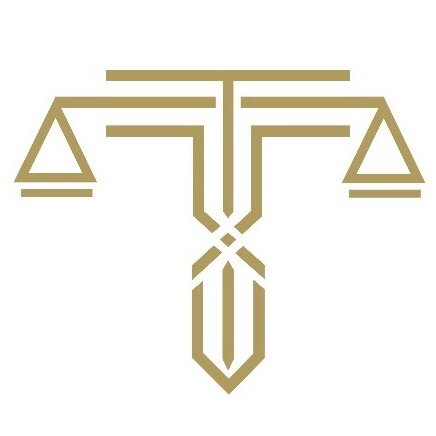Best Equity Capital Markets Lawyers in Dammam
Share your needs with us, get contacted by law firms.
Free. Takes 2 min.
List of the best lawyers in Dammam, Saudi Arabia
About Equity Capital Markets Law in Dammam, Saudi Arabia
Equity Capital Markets (ECM) law in Dammam, Saudi Arabia, governs the processes and regulations involved in issuing, buying, and selling equity securities, such as shares, on the public and private markets. Dammam, as a part of Saudi Arabia’s rapidly developing Eastern Province, is seeing increased business activities and investment opportunities. In this context, ECM law plays a critical role by providing a legal framework for companies looking to raise funds through the stock market. The Capital Market Authority (CMA) is the main regulatory body in charge of enforcing these laws, ensuring transparency, fairness, and investor protection within the capital markets.
Why You May Need a Lawyer
Navigating equity capital markets in Dammam can be complex due to tight regulations and local business practices. Common situations where legal assistance is invaluable include:
- Assisting companies with initial public offerings (IPOs) and private placements
- Drafting and reviewing prospectuses and offering documents to ensure regulatory compliance
- Structuring equity offerings and negotiating terms with investors
- Guiding foreign investors on the legal requirements for participating in Saudi capital markets
- Advising on insider trading rules and market manipulation concerns
- Helping resolve disputes related to equity transactions
- Ensuring compliance with the Saudi Arabian Capital Market Law and CMA regulations
- Assisting with Mergers & Acquisitions that involve equity instruments
Because the regulatory landscape is constantly evolving, having a knowledgeable lawyer helps avoid costly mistakes and ensures smooth transactions in the equity capital markets.
Local Laws Overview
Several local laws and regulations are particularly relevant to equity capital markets in Dammam:
- Capital Market Law: This law, enforced by the Capital Market Authority, governs the issuance and trading of securities, focusing on investor protection and market integrity.
- CMA Implementing Regulations: These provide detailed procedures for IPOs, disclosure obligations, insider trading, and ongoing reporting for public companies.
- Corporate Governance Regulations: Companies listed on the Saudi Stock Exchange (Tadawul) must comply with strict rules about board composition, shareholder rights, and transparency.
- Foreign Investment Laws: Foreign investors must adhere to specific ownership limits and regulatory approvals when participating in capital market activities in Dammam.
- Sharia Compliance: All capital market activities must comply with Islamic finance principles, which impact the structure of certain offerings and transactions.
- Anti-Money Laundering Law: Market participants must follow procedures to prevent money laundering and report suspicious activities.
These laws are designed to foster a fair, efficient, and transparent market environment, and non-compliance can lead to significant penalties or legal disputes.
Frequently Asked Questions
What is meant by Equity Capital Markets in Dammam?
Equity Capital Markets refers to the platforms and regulatory processes involved in raising funds by issuing shares to public or private investors in Dammam, whether through initial public offerings or secondary offerings.
Who regulates equity capital markets in Dammam?
The Capital Market Authority (CMA) is the chief regulatory body overseeing the equity capital markets across all cities in Saudi Arabia, including Dammam.
Can foreign investors participate in the Dammam equity capital markets?
Yes, but foreign investors must comply with CMA regulations, certain restrictions, and may require approvals to purchase shares or participate in offerings.
What kinds of legal issues commonly arise in ECM transactions?
Typical issues include regulatory compliance, inadequate disclosure, shareholder disputes, insider trading accusations, and incomplete transaction documentation.
Do all companies seeking to go public need to follow the same rules?
Generally, all companies must comply with CMA regulations, but additional rules may apply depending on the size, sector, or whether the company is state-owned.
What documents are required for an IPO in Dammam?
Key documents include a prospectus, financial statements, corporate governance reports, and various disclosures as specified by the CMA.
Are there restrictions on share ownership for non-Saudis?
Yes, foreign ownership is subject to sector-specific limits and CMA rules, which must be reviewed before making any investment.
How is Sharia law relevant to ECM transactions?
All financial activities, including equity offerings, must comply with Islamic finance principles, affecting the structure of securities and business operations.
What are the penalties for non-compliance with ECM regulations?
Penalties include fines, trading suspensions, possible criminal liability for serious offenses like fraud or insider trading, and civil claims by investors.
How can a lawyer help during an equity offering?
A lawyer can draft and review documents, ensure regulatory compliance, structure the transaction, coordinate with authorities, and resolve any legal disputes.
Additional Resources
For further information or guidance related to equity capital markets in Dammam, consider consulting the following organizations:
- Capital Market Authority (CMA)
- Saudi Stock Exchange (Tadawul)
- Ministry of Commerce of Saudi Arabia
- Saudi Arabian General Investment Authority (SAGIA)
- Local chambers of commerce and industry in Dammam
- Law firms specializing in capital markets and corporate governance
These organizations can provide legal guidelines, updates on regulations, and public resources for both issuers and investors.
Next Steps
If you need legal assistance in Equity Capital Markets in Dammam, start by identifying your specific requirements - whether it is advice for an IPO, compliance concerns, foreign investment queries, or dispute resolution. Research local law firms or legal professionals with expertise in Saudi capital markets regulations. Prepare relevant documentation such as business licenses, financial statements, and previous correspondence with regulatory bodies. Schedule a meeting with a specialist lawyer to discuss your objectives, risks, and the best course of action for your situation. Timely professional advice can prevent complications and ensure your transactions are both compliant and successful.
Lawzana helps you find the best lawyers and law firms in Dammam through a curated and pre-screened list of qualified legal professionals. Our platform offers rankings and detailed profiles of attorneys and law firms, allowing you to compare based on practice areas, including Equity Capital Markets, experience, and client feedback.
Each profile includes a description of the firm's areas of practice, client reviews, team members and partners, year of establishment, spoken languages, office locations, contact information, social media presence, and any published articles or resources. Most firms on our platform speak English and are experienced in both local and international legal matters.
Get a quote from top-rated law firms in Dammam, Saudi Arabia — quickly, securely, and without unnecessary hassle.
Disclaimer:
The information provided on this page is for general informational purposes only and does not constitute legal advice. While we strive to ensure the accuracy and relevance of the content, legal information may change over time, and interpretations of the law can vary. You should always consult with a qualified legal professional for advice specific to your situation.
We disclaim all liability for actions taken or not taken based on the content of this page. If you believe any information is incorrect or outdated, please contact us, and we will review and update it where appropriate.















